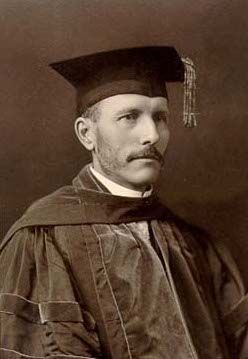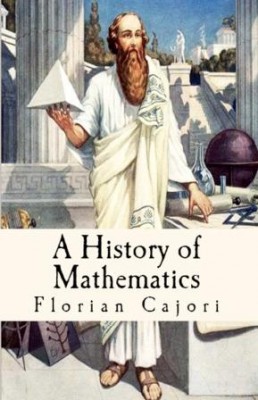More Search Results...

Florian Cajori (1859 – 1930) was an American historian of mathematics.
Florian Cajori immigrated to the United States at the age of sixteen. He received both his bachelor’ and master’s degrees from the University of Wisconsin–Madison. He taught for a few years at Tulane University, before being appointed as professor of applied mathematics there in 1887. He was then driven north by tuberculosis. He founded the Colorado College Scientific Society and taught at Colorado College where he held, at different times, the chair in physics, the chair in mathematics, and the position Dean of the engineering department. While in Colorado, he received his doctorate from Tulane in 1894.
Cajori’s A History of Mathematics (1894) was the first popular presentation of the history of mathematics in the United States. Based upon his reputation in the history of mathematics (even today his 1928–29 History of Mathematical Notations has been described as “unsurpassed”) he was appointed in 1918 to the first history of mathematics chair in the U.S, created especially for him, at the University of California, Berkeley. He remained in Berkeley, California until his death in 1930.
Cajori did no original mathematical research unrelated to the history of mathematics. In addition to his numerous books, he also contributed highly recognized and popular historical articles to the American Mathematical Monthly. His last work was a revision of Andrew Motte’s 1729 translation of Newton’s Principia, vol.1 The Motion of Bodies, but he died before it was completed. The work was finished by R.T.Crawford of Berkeley, California.
A History of Mathematics
The contemplation of the various steps by which mankind has come into possession of the vast stock of mathematical knowledge can hardly fail to interest the mathematician. He takes pride in the fact that his science, more than any other, is an exact science, and that hardly anything ever done in mathematics has proved to be useless.
The chemist smiles at the childish efforts of alchemists, but the mathematician finds the geometry of the Greeks and the arithmetic of the Hindoos as useful and admirable as any research of today. He is pleased to notice that though, in course of its development, mathematics has had periods of slow growth, yet in the main it has been pre-eminently a progressive science.
More info →




























